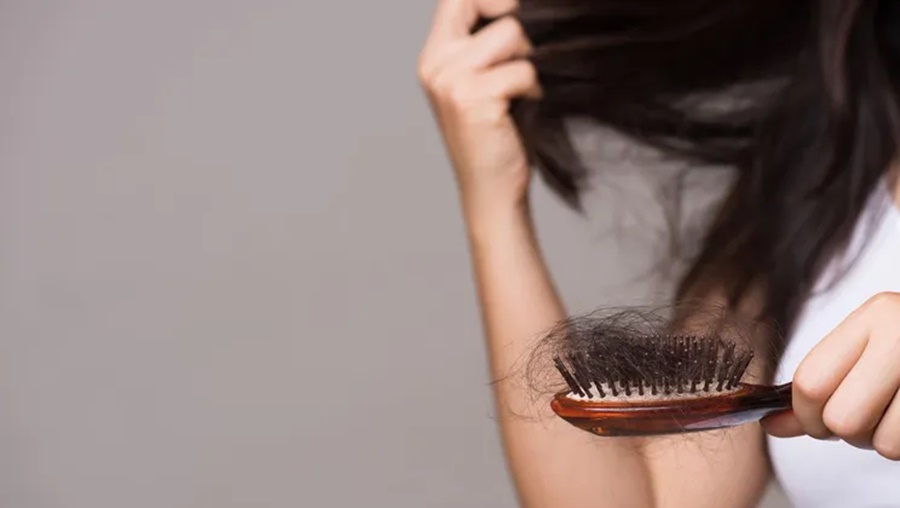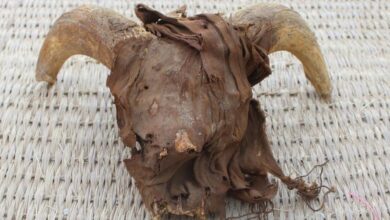The intestines can also be to blame for hair loss

Genetic causes or age are not always to blame for hair loss. It is also possible that the hair roots lack important nutrients.
If these are not supplied to the body in sufficient quantities, the hair falls out. The gut plays an important role in this. Learn how gut health affects hair growth.
“Hair needs sufficient carbohydrates as an energy supplier as well as essential fatty acids, proteins and amino acids as the building blocks of keratin. There are also minerals such as iron and zinc as well as vitamins such as biotin and niacin,” explains Dr. Andreas M. Finner, hair doctor and dermatologist from Berlin. “A deficiency of these substances can not only lead to hair structure damage and hair breakage, but also to hair loss.”
Hair loss due to nutrient deficiencies
If the body and the hair lack essential nutrients, the hair roots stop growing and go into a three-month dormant phase before they fall out. The hair does not only fall out in certain places, but evenly over the entire scalp. Doctors call this type of hair loss diffuse hair loss.
If the supply of nutrients to the hair follicles is restored, the hair roots start working again and the hair goes back into the growth phase. “However, a lot of hair volume can be lost because it takes time for the hair to return to its original length,” says Dr. Finnish.
Diet affects hair growth
A common cause of diffuse hair loss is a short or long-term nutrient deficiency. This is caused, for example, by a strict diet or an unhealthy diet. If the symptoms persist for a longer period of time, you should investigate the cause and consult a doctor.
A balanced diet or special dietary supplements are recommended for hair loss and can support hair growth. Whole grains are high in zinc, iron, and B vitamins, which are good for your hair. In addition to iron and zinc, meat provides high-quality amino acids and protein building blocks. Dairy products can also contribute to the supply of nutrients.
Intestinal diseases cause hair loss
In many cases, the intestines can also be to blame when the hair falls out. Because the digestive organ is responsible for filtering vitamins, minerals and trace elements from food and feeding them to the body. “Intestinal diseases with diarrhea as well as intestinal inflammation and food intolerance interfere with this intestinal function and can lead to hair loss,” says the hair expert.
The balance of healthy and unhealthy intestinal bacteria is also important for the intestinal flora. If this is disturbed by a poor diet, for example, intestinal cleansing can help to treat the symptoms. A healthy intestinal flora not only has a positive effect on the hair, but also on the skin, digestion and general well-being. Stress or permanent physical or mental strain can also damage the intestines.
Thyroid problems cause hair loss
In addition to the intestine, other diseases of the body can also cause hair loss. Thyroid disease often leads to hair loss. Other triggers are hormone fluctuations, which often occur in women due to pregnancy or menopause, fever, surgery and the use of medication such as blood thinners or beta-blockers. In some cases, however, it can also happen that no exact cause of the hair loss can be found.
See a doctor if you have hair loss
You should never ignore hair loss, because it is always a sign that something is wrong. “If the cause is not clearly visible and is temporary, such as the flu a few months ago, a hair consultation should be sought to find the exact cause,” advises Finner. Appropriate therapy to treat the hair loss or any diseases can only be initiated when the trigger is known.



